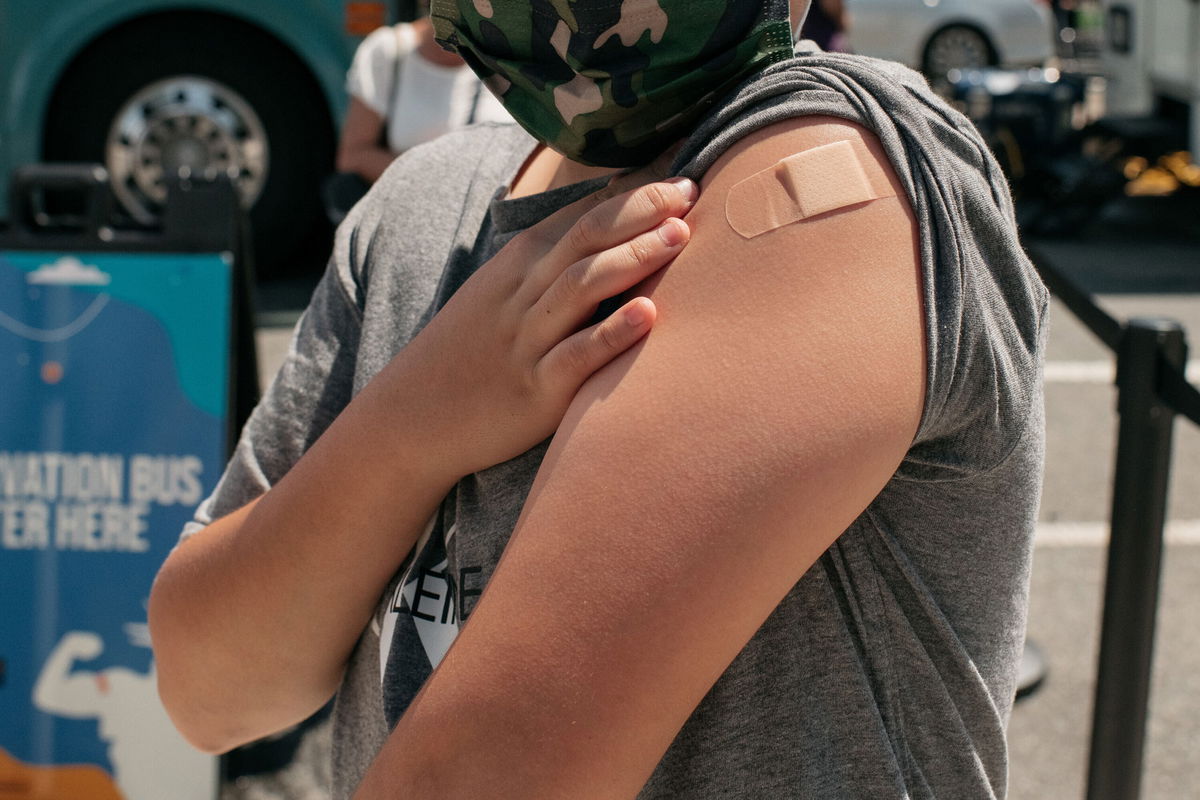16- and 17-year-olds are now eligible for a Pfizer/BioNTech Covid-19 vaccine booster

By Jamie Gumbrecht, CNN
The US Food and Drug Administration on Thursday authorized the Pfizer/BioNTech Covid-19 vaccine for use as a booster in people ages 16 and 17, and the US Centers for Disease Control and Prevention recommended it for this age group.
It’s the first Covid-19 vaccine booster authorized for 16- and 17-year-olds in the United States.
Just as with adults, 16- and 17-year-olds are eligible to receive a booster dose six months after their second dose of the Pfizer/BioNTech vaccine. About 2.6 million US teens in this age group would be eligible for boosters already — a small addition to the 141 million adults already eligible for boosters.
“The Pfizer-BioNTech COVID-19 Vaccine has been available to individuals 16 years of age and older for nearly a year, and its benefits have been shown to clearly outweigh potential risks,” Dr. Peter Marks, director of the FDA’s Center for Biologics Evaluation and Research, said in a news release Thursday.
“Since we first authorized the vaccine, new evidence indicates that vaccine effectiveness against COVID-19 is waning after the second dose of the vaccine for all adults and for those in the 16- and 17-year-old age group,” Marks said. “A single booster dose of the vaccine for those vaccinated at least six months prior will help provide continued protection against COVID-19 in this and older age groups.”
A few hours later, CDC Director Dr. Rochelle Walensky released a statement saying the agency is “strengthening its booster recommendations and encouraging everyone 16 and older to receive a booster shot.”
Although we don’t have all the answers on the Omicron variant, initial data suggests that COVID-19 boosters help broaden and strengthen the protection against Omicron and other variants,” Walensky said. “We know that COVID-19 vaccines are safe and effective, and I strongly encourage adolescents ages 16 and 17 to get their booster if they are at least 6 months post their initial Pfizer vaccination series.”
Vaccinations, booster shots, wearing masks and avoiding large crowds all remain among “our most effect methods” for fighting Covid-19, Acting FDA Commissioner Dr. Janet Woodcock said in the release.
“As people gather indoors with family and friends for the holidays, we can’t let up on all the preventive public health measures that we have been taking during the pandemic,” Woodcock said. “With both the delta and omicron variants continuing to spread, vaccination remains the best protection against COVID-19.”
On Wednesday, Pfizer and BioNTech announced preliminary data that suggest its two-dose vaccine does not provide sufficient protection against infection with the Omicron coronavirus variant, although it may still protect against severe disease. However, the companies found, a booster dose increased protection significantly, to nearly the level of protection its two-dose vaccine provided against the earlier strain of the virus.
“Today’s decision by the FDA to further expand the Emergency Use Authorization of a booster dose of our COVID-19 vaccine is a critical milestone as we continue to stay vigilant in addressing the virus,” Pfizer Chairman and CEO Albert Bourla said in a statement. “From the beginning, we aimed to provide strong, safe protection to as many people as possible in an effort to end this pandemic. While new variants, including Omicron, emerge across the globe, we believe that the best way to minimize the spread of COVID-19 and any future variants is getting all eligible people fully vaccinated with the first two dose series and a booster dose as recommended.”
“The booster vaccination increases the level of immunity and dramatically improves protection against COVID-19 in all age groups studied so far,” said Dr. Ugur Sahin, CEO and co-founder of BioNTech. “In the current situation, it is important to offer everyone a booster, particularly against the background of the newly emerging variants such as Omicron.”
US health officials have been pushing Americans to get boosted for months; so far, about 50 million people — 26.9% of fully vaccinated adults — have received an additional dose.
The Pfizer vaccine is authorized for use in children as young as 5, but previously, only adults were eligible to receive booster doses.
Now, people age 16 and older are able to receive a Pfizer booster six months after their second shot; Moderna vaccine recipients age 18 and older may receive any booster six months after their second shot; and Johnson & Johnson vaccine recipients may receive any booster two months after their single dose. Adults may mix and match boosters; 16- and 17-year-olds are only eligible to receive the Pfizer booster.
The-CNN-Wire
™ & © 2021 Cable News Network, Inc., a WarnerMedia Company. All rights reserved.
CNN’s Deidre McPhillips and Jacqueline Howard contributed to this report.
